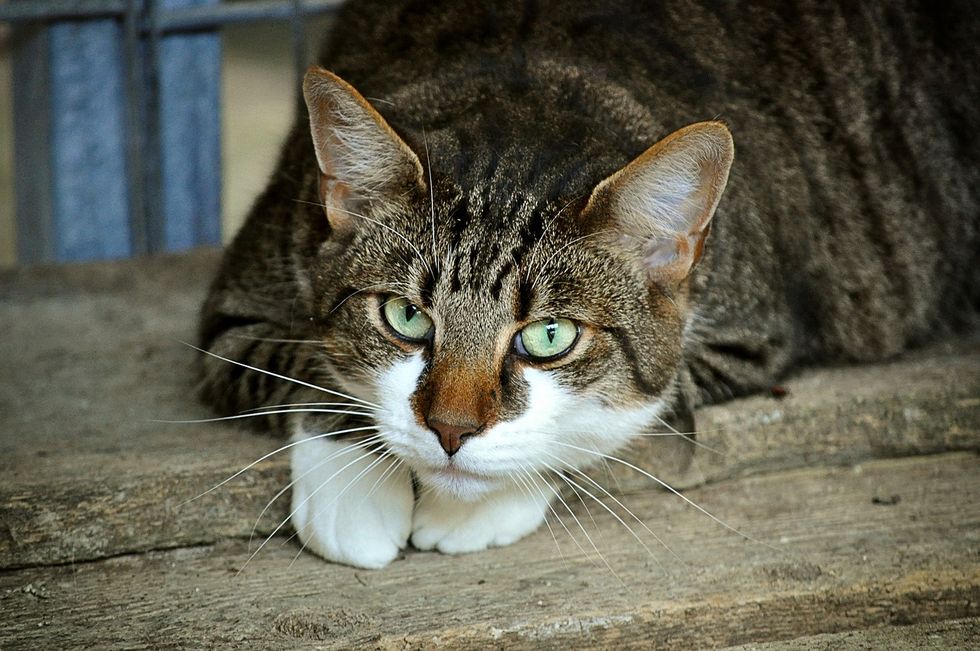Like when expecting a human baby there is a lot of preparation you need to do before you bring your new kitten at home or before your cat gives birth to litters. Don't forget your little kitten will be a member of the family and must feel welcome from the first moment.
In order to realize the importance of those first few days, think about you, being little and leaving home for the first time! It sounds scary doesn't it? Don't forget that all kittens are being looked after by their mum, being fed by their mum and being secured by their mum. Now, when you take your new kitten at home with you, you have to play the role of their mum by making sure your kitten is well looked after!
There are some things you have to make sure you do before bringing your new kitten at home. Be prepared and buy all basic equipment before she arrives.
Food and Bowls: Although most breeders give their kittens away when they do no longer depend on their mother it is your responsibility to make sure that this is the case.This is normally at 6-7 weeks of age. Before you leave the breeder ask them what they have been feeding the kitten and if possible stick to the same food for a few days. Then change over to the one you want by gradually giving your kitten a bit from the old and the new food. You will need to provide your kitten with separate bowls for food and water. These can be plastic, porcelain or stainless steel. Water bowls must be available to your kitten at all times and you will have to change the water regularly. How often shall I feed my kitten? Kittens are usually fed 3 times a day until they are 6 months of age. Then they are fed twice a day until 9 months of age and finally adult cats are fed once a day.
Litter Tray: One of the things you will need to consider is to buy your cat a Litter Tray even if you plan to let her out in the garden every day. Buy a plastic tray or one that is covered with a "hood" to stop the kitten from making a mess around the litter tray area. You may want to consider a plastic bag covering the tray to make changing litter easier. Litter tray must be placed in a quiet room, away from the family lounge because cats are shy pets and require privacy. Litter trays have to be placed away from food and water bowls and preferably in a separate room. There is variety of litter and litter trays to choose from in the market.
Carrier: You will certainly need a carrier for the first visits to the vet. You may buy a wire type or a plastic box. Both types are suitable. Make sure that you buy a large enough carrier so that you will not have to change it when your cat gets older and bigger. Always place a cloth or a blanket in the carrier before putting your cat in so that she will feel warm and comfortable. You can also give your cat her favorite toy to keep her busy and happy while in the carrier.
Scratching Post: It is very important that your cat has a place to sharp her claw. It is better if you provide her with a scratching post at an early age so that she gets used to it. This will stop her from scratching the furniture and your carpets. Scratching posts are not very expensive but you could also make one yourself. If you attach a wooden post to a heavy base and wrap the post with thick, strong rope you have a very nice scratching post for you cat's clawing needs.
Bed: You may require a bed for your kitten but this is not always the case. Kittens tend to sleep everywhere they like and sometimes cat beds are not very useful. If you want to buy her a bed buy a cosy bed with no sharp edges and place her in there every time she falls asleep.
Toys: Toys must be safe. Avoid small size toys that you cat may swallow or sharp edges that your cat may cut herself while playing. There is no need to spend a fortune in cat toys. Sometimes the simplest toys like an artificial snake can keep your cat busy for hours. Cats play with balls, furry mice even rolled pieces of paper. Make sure you have enough toys to keep your cat busy at all times. Boredom is one of the first causes of misbehaving.
Vet: It is important to register your cat with a vet and take her for an examination as soon as she arrives at home. Call the local athoritites (City Council etc) or search in the Yellow Pages for a vet closer to your house. Once you visit the vet he/she will be able to advice you regarding health matters and vaccinations. dont forget that your cat receives her first vaccination around 9 weeks of age.



 Christmas and New Year gift card
Photo by
Christmas and New Year gift card
Photo by  butter cookies on plate
Photo by
butter cookies on plate
Photo by  boy holding Holy
boy holding Holy 







